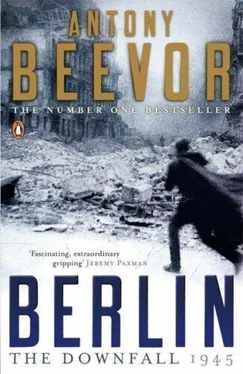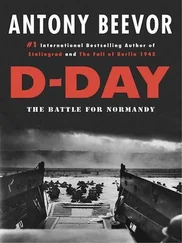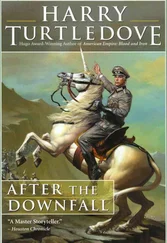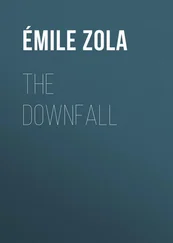Grossman noted the ‘horror in the eyes of women and girls… Terrible things are happening to German women. A cultivated German man explains with expressive gestures and broken Russian words that his wife has been raped by ten men that day… Soviet girls who have been liberated from camps are suffering greatly too. Last night some of them hid in the room provided for the war correspondents. Screams wake us up in the night. One of the correspondents could not restrain himself. An animated discussion takes place, and order is restored.’ Grossman then noted what he had evidently heard about a young mother. She was being raped continuously in a farm shed. Her relatives came to the shed and asked the soldiers to allow her a break to breast-feed the baby because it would not stop crying. All this was taking place next to a headquarters and in the full sight of officers supposedly responsible for discipline.
On Tuesday 30 January, the day that Hitler addressed the German people for the last time, the German army suddenly realized that the threat to Berlin was even greater than they had feared. Zhukov’s leading units had not only penetrated the Meseritz defence zone with ease, they were within striking distance of the Oder. At 7.30 a.m., the headquarters of Army Group Vistula heard that the Landsberg road was ‘full of enemy tanks’. Air reconnaissance flights were scrambled.
Himmler insisted on sending a battalion of Tiger tanks all on its own by train to restore the situation. His staff’s protests had no effect because the Reichsführer SS was firmly convinced that a battalion of Tigers could defeat a whole Soviet tank army. The fifty-ton monsters were still fastened to their railway flat cars when they came under fire from three or four Soviet tanks. The battalion suffered heavy losses before the train managed to withdraw urgently towards Küstrin. Himmler wanted the battalion commander court-martialled until he was eventually persuaded that a Tiger tank fastened to a railway wagon was not in the best position to fight.
During this time of extreme crisis, Himmler imitated Stalin’s ‘Not one step back’ order of 1942, even if his version did not have the same ring. It was entitled ‘ Tod und Strafe für Pflichtvergessenheit’ — ‘Death and punishment for failure to carry out one’s duty’. It tried to end on an uplifting note. ‘After hard trials lasting several weeks the day will come,’ he claimed, ‘when German territories will be free again.’ Another order forbade women on pain of severe punishment to give any food to retreating troops. And in an order of the day to Army Group Vistula he declared, ‘The Lord God has never forsaken our people and he has always helped the brave in their hour of greatest need.’ Both historically and theologically, this was an extremely dubious assertion.
Himmler, aware that word was spreading fast of the flight of senior Nazi officials, especially Gauleiters Koch and Greiser, decided to make an example at a lower level. On the same day as his other orders, he announced the execution of the police director of Bromberg for abandoning his post. A bürgermeister who had ‘left his town without giving an evacuation order’ was hanged at 3 p.m. at Schwedt on the Oder a few days later.
This twelfth anniversary of Hitler’s regime was also the second anniversary of the defeat at Stalingrad. Beria was informed of a conversation picked up by microphones hidden in a prison cell between Field Marshal Paulus, General Strecker, the commander who held out for longest in the factory district, and General von Seydlitz.
‘Captured German generals are in very bad spirits’, Beria was informed. They had been horrified by Churchill’s speech in the House of Commons six weeks earlier, supporting Stalin’s proposal that Poland should be compensated with East Prussia and other areas. The German generals felt that their position in the Soviet-controlled Free Germany movement had become impossible. ‘The Nazis in this matter are more positive than we are,’ Field Marshal Paulus acknowledged, ‘because they are holding on to German territory, trying to preserve its integrity.’
Even General von Seydlitz, who had proposed the airlift of anti-Nazi German prisoners of war to start a revolution within the Reich, thought that ‘the ripping away of German lands to create a safety barrier will not be fair’. All the captured generals now realized that the anti-Nazi League of German Officers had just been exploited by the Soviet Union for its own ends. ‘I am tormented by a terrible anxiety,’ said Seydlitz, ‘whether we have chosen the right course.’ The Nazi regime had labelled him ‘the traitor Seydlitz’ and condemned him to death in absentia.
‘All Hitler thinks about,’ said Paulus, ‘is how to force the German people into new sacrifices. Never before in history has lying been such a powerful weapon in diplomacy and policy. We Germans have been cunningly deceived by a man who usurped power.’
‘Why has God become so angry with Germany,’ replied Strecker, ‘that he sent us Hitler! Are the German people so ignoble? Have they deserved such a punishment?’
‘It is two years since the Stalingrad catastrophe,’ said Paulus. ‘And now the whole of Germany is becoming a gigantic Stalingrad.’
Himmler’s threats and exhortations did nothing to save the situation. That very night Soviet rifle battalions led by Colonel Esipenko, the deputy commander of the 89th Guards Rifle Division, reached the Oder and crossed the ice during darkness. They fanned out, forming a small bridgehead just north of Küstrin.
Berzarin’s men from the 5th Shock Army crossed the frozen Oder early on the morning of Sunday 31 January, and entered the village of Kienitz. They had crossed the ice following the tracks of farmers who had been collecting firewood on the eastern bank. Only the baker and his assistant were awake. The Soviet troops under Colonel Esipenko captured a train with six anti-aircraft guns, thirteen officers and sixty-three young conscripts from the Reich Labour Service. A small group, clad in no more than the clothes in which they had been sleeping, managed to escape across the snowfields to warn the nearby town of Wriezen of the enemy coup de main. Soviet troops were now within seventy kilometres of the Reich Chancellery.
On the same day, just south of Küstrin, the ebullient Colonel Gusakovsky crossed the Oder with his 44th Guards Tank Brigade, forming another bridgehead. He thus won his second gold star of Hero of the Soviet Union. Soviet troops on both bridgeheads immediately began digging trenches in the frozen marshy ground of the Oderbruch, the Oder flood plain between the river and the Seelow Heights. Artillery regiments were rushed forward to give them support. They expected a rapid and furious counter-attack, but the Germans were so shaken by what had happened — Goebbels was still trying to pretend that fighting was going on close to Warsaw — that it took them time to rush in sufficient ground forces. Focke-Wulf fighters, however, were in action over the Oder the following morning, strafing the freshly dug trenches and anti-tank gun positions. The Soviet anti-aircraft division which had been promised did not turn up for three more days, so Chuikov’s men, laying ice tracks across the thinly frozen river, were extremely vulnerable. They managed nevertheless to pull anti-tank guns across on skis to defend their positions.
The news of Soviet bridgeheads across the Oder was just as much of a shock to soldiers as to local civilians. Walter Beier, who had been spared from the Feldgendarmerie’s trawl of leave-takers on the train from East Prussia, was enjoying his last days at home on the Buchsmühlenweg, between Küstrin and Frankfurt an der Oder. ‘Happiness in the bosom of the family did not last long,’ he recorded. On the evening of 2 February an agitated neighbour came running to the house to say that about 800 Russians had taken up position in an oak wood only 500 metres away.
Читать дальше











